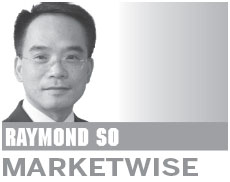Do not mix up government involvement and corrective actions
Updated: 2013-01-18 07:01
By Raymond So(HK Edition)
|
|||||||

Last week the Heritage Foundation released the latest Index of Economic Freedom announcingthat Hong Kong enjoys the most economic freedom. Our city has topped the list for 19 consecutive years. To many, being recognized as the freest economy is indeed an important international recognition.
The Heritage Foundation is a conservative economic think tank in the US, famous for its stand against government intervention in economic affairs. Even for the US, the Foundation does not classify the country as an economy with total economic freedom. To the Foundation, since Hong Kong has been practicing free market economy and a lassie-faire policy, the city offers the best model in the Foundation's eyes.
However, the Foundation points out explicitly that it was concerned over the city's economic freedom as more government intervention in the economy was being asked for under the current political development..
But from the establishment of the Index of Economic Freedom itself, one can tell the importance of government involvement.
Out of the Index's 50 benchmarks, they are divided into 10 major categories which include virtually everyone who is related to government policies. The Heritage Foundation assigns marks to the benchmarks and the aggregate points are indexed on a scale of 1 to 100. An economy's economic freedom is gauged on the number of marks it gets, with higher marks assigned a higher economic freedom ranking. According to the Foundation, economies that have higher economic freedom tend to have higher economic development as well as higher growth.
From a technical point of view, in order to achieve a high score in the ranking game, the key is to have the lowest government involvement as possible. In the past, when Hong Kong was famous for its lassie-faire policy and the "big economy small government" concept, that is the reason Hong Kong is being praised for having the world's greatest economic freedom.
However, the recent developments like the minimum wage, "Hong Kong property for Hong Kong residents" policy, as well as the buyer's special stamp duty in real estate transaction hasraised people's concern that Hong Kong is moving away from the free market. It is true that the above mentioned policies do somehow impose restrictions on doing business in Hong Kong . It is also true that the current developments in the society involves asking for more government support in various policies. Nevertheless, these concerns while being legitimate are not a clear indication of the market economy divergence in Hong Kong's development. Rather, these are signs of the market economy's refinement of which Hong Kong is proud of. In short, when the society's policies face failure, then the government has a role. In economics, we call this market failure. When the market fails, the government's roles are to restore the order and make the market function again. From this perspective, this is not an involvement, but rather corrective actions. One should make the distinction between involvement and correction.
To many critics, Hong Kong is moving against economic freedom. However, people may have different political standpoints. It is important not to mix up involvement and corrective actions.
The author is dean, School of Business, Hang Seng Management College. The views expressed here are entirely his own.
(HK Edition 01/18/2013 page2)